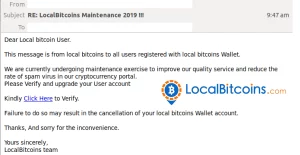This article is designed for individuals interested in cryptocurrency, particularly those considering buying Bitcoin or other cryptocurrencies. It’s targeted at beginners and enthusiasts who want to educate themselves about the various crypto scams prevalent in the industry. The article aims to provide practical knowledge to help readers identify and avoid scams, ensuring a safe and informed experience in the cryptocurrency market.
Introduction to Crypto Scams
Cryptocurrency investment, particularly in the case of Bitcoin, has garnered immense attention due to its skyrocketing value. However, the excitement surrounding this digital goldmine has cast a shadow, one that’s hard to ignore – the rising prevalence of cryptocurrency scams. In this comprehensive guide, we will illuminate six prominent cryptocurrency scams that every aspiring investor must familiarize themselves with before diving into the dynamic world of digital currencies.
The rapid growth of the cryptocurrency sector has created a breeding ground for scammers, capitalizing on its intricate nature and technological complexities. By weaving intricate webs of marketing jargon and false promises, these fraudsters exploit the uninformed, rendering them susceptible to their elaborate schemes. It is essential to arm oneself with the knowledge to identify these scams and shield your investments from potential harm.
Unveiling the Tactics: How Cryptocurrency Scams Operate
Cryptocurrency scams function at the crossroads of technological prowess and malicious intent. The fusion of manipulative marketing tactics, technical deceit, and the art of social engineering forms the backbone of their operations. This cunning combination often tricks victims into trusting these scams and losing their hard-earned funds.
1. Initial Coin Offerings (ICOs):
Initial Coin Offerings are a fundraising mechanism used by cryptocurrency companies to raise capital for their projects. It involves issuing a new cryptocurrency or token to investors in exchange for established cryptocurrencies like Bitcoin or Ethereum. While some ICOs are legitimate and have led to successful projects, a significant number have turned out to be scams. These scams often involve false promises and misleading information to attract investors.

2. Bitcoin Mining Scams:
Bitcoin mining is the process of validating transactions and adding them to the blockchain using computational power. Scammers target individuals who want to mine Bitcoin by offering opportunities to invest in mining operations. They promise substantial returns on investment, but once they’ve received funds from investors, they disappear without delivering the promised returns. In some cases, they might operate Ponzi schemes, using funds from new investors to pay returns to earlier ones.

3. Cryptocurrency Giveaway Scams:
In this scam, scammers use social media platforms and impersonate well-known figures or organizations in the cryptocurrency space. They claim to be conducting a giveaway where users are asked to send a certain amount of cryptocurrency to receive a larger sum in return. Victims are enticed by the prospect of receiving lucrative returns, but after sending their cryptocurrency, they never receive anything in return. These scams take advantage of people’s trust in influential figures.

4. Fake Websites and Crypto Scams:
Scammers create fake websites that mimic legitimate cryptocurrency exchanges or wallets. These websites are designed to steal users’ confidential information, such as login credentials or private keys. Users might unknowingly provide their information, thinking they are accessing a legitimate platform. Additionally, scammers may prompt users to download software that contains malicious code, leading to data theft or other security breaches.

5. Yield Farming Incentives:
Yield farming involves providing liquidity to decentralized finance (DeFi) protocols in exchange for rewards. Scammers take advantage of the complex nature of yield farming by introducing fake projects or copying legitimate ones. They entice users to invest funds, promising high returns. Once they’ve gathered enough investments, they disappear, leaving investors with losses. Some scammers may also exploit vulnerabilities in legitimate projects for personal gain.

6. Email-Based Crypto Scams:
Scammers send emails that appear to be from legitimate sources, such as cryptocurrency exchanges or service providers. These emails typically contain urgent requests, such as asking the recipient to click on a link to resolve an issue with their account. When users click on the link, they might unknowingly reveal sensitive information like passwords or private keys, allowing scammers to gain unauthorized access to their accounts.

Conclusion
As the realm of cryptocurrencies continues to evolve, the potential for substantial rewards remains enthralling, but it comes with equally significant risks. Armed with an understanding of these prevalent cryptocurrency scams, you’re poised to navigate the intricate landscape of digital currencies more effectively. Remember, knowledge is your ultimate shield against deception. Stay informed, exercise prudence, and make informed decisions to ensure your expedition into the realm of cryptocurrency remains secure and prosperous. Guard your investments vigilantly, allowing your venture into the digital asset world to flourish with confidence and stability.












